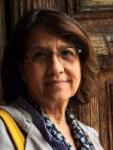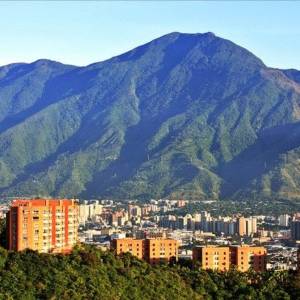For a time, I believed that I had a language. I was sure: it was as much as part of me as my skin. This certainty began at age four, when my father taught me to read. It was in my mouth, in everyone’s mouth, and it was in the red and blue letters of the spelling book; and from there to adverts, posters, shops, cafés, and endless signs. Hundreds of signs. The whole city was full of alphabets, calls, winks, availabilities: Vicolo San Giuseppe, Non attraversare, Calzolaio, Poste italiane, Lavori in corso. It was as if no object or action had existed before it appeared in writing, before the letter gave it consistency and depth. It was one thing to say “gelato” and quite another to recognize the tangible identity of GELATO in capitals on the sign of the ice cream parlor at the corner. Discovering the enormity of reading was like gaining access to the semantics of the world through the thread that went from the spelling book to the city and from the city to books. In this way, awareness of language and awareness of reading together formed the epiphany that marked my early childhood.
The language that I believed was mine really belonged to my parents and ancestors. It was an inheritance we cultivated and celebrated in all its forms: written, sung, argued, and dreamt. We loved rhetoric, exaggerated gestures, music, melodrama. They were all languages; that is, evidence of universal plurality. They were folds of languages between languages, tones, dialects of dialects that distinguished the accent of one tiny town from another a few kilometers away. We were masters of the art of enunciation and of heteroglossia. And how! A family story told of my paternal grandfather (not my maternal one, who had been “expelled” by my grandmother for having fallen asleep at the opera), who was facing trial following a bar fight, dismissing the lawyer who had been assigned to him, defending himself instead, and doing a better job of it. That is how it was in those days, when the language was mine because it belonged to everyone, and I nestled in it like a Nereid in the Mediterranean.
When did that certainty crack? When did gaining and losing languages become my mark, the perfect metonym for an existential extra-territoriality? I like to think that it was when my family migrated to Venezuela at the end of the 1950s, when my mother tongue started, almost imperceptibly, to be pushed toward the labyrinths of subjectivity by the advance of the acquired language. Maybe the same thing would have happened with another trigger. Mine, ours, was the euphoric emigration—rather kaleidoscopic in its endless effects—and the dream of a new world in a tropical-modern version against the misery of the post-war period. It was the reunion with my father after his departure, and his exemplary decision to lead the way by exercising the maximum act of freedom: emigrating. To emigrate was to escape the original container, overcoming the fate of being born in a place and a time we had not chosen. It was also traveling, exposing, exploring, and confronting every form of otherness. With his example, my father generated two contradictory and simultaneous outlooks: the inalienable right to travel the world and the eternal nostalgia for a lost home. Freedom and melancholy. Expatriated and free, ecological animals before political ones, we carried with us the skin of that wandering shepherd from Leopardi and his metaphysical question about the meaning of the universe and the fragility of the human condition.
Without knowing it, we had the formative opportunity that every spatial dislocation provides, with its tremendous or terrible consequences: the great mess of managing our cultural heritage that was beginning to intertwine with another, making and unmaking a rhizome of invisible connections. And it left us with another greater mess, the only one that really matters, the abysmal conflict of “know thyself” that underlies all possible messes and problems: Who am I? Where do I come from? Why am I here?
That Socratic path that begins with emigration and distinguishes us from the sedentary ones opened as if by blows from the Caribbean. We soon let ourselves be infected by the bittersweet taste of the Venezuelan language with its portentous creations: cachicamo, faramallero, bochinche, jurungar—armadillo, chatterbox, racket, rummage. How could anyone be the same after such an anti-etymology? Guimarães Rosa said that every word “has its shadow.” He said this while waiting for the outcome of his patients on the roads of the sertão, trying out the phonetics of a Russian word that would perhaps be useful for his insuperable onomatopoeias. As a country doctor, watching over death, he cut and sculpted with the fine scalpel of poetry the shadow of words and their metamorphosis. He made light out of the shadows, and out of death, genuine life and regeneration.
It seems impossible and disorienting to determine the reasons for the practice—rather than the preference—of one language over another on the part of the writer, because it is not about choice or blind obedience to circumstances. There will be interesting bio-bibliographical research, neurological explanations and historical perspectives that will provide fascinating answers. But I still do not know how far the shadow of the continents extends over the cachicamo.
The migratory experience of losing, gaining, and losing all over again becomes a part of the journey to a set destination. In that sense, bilingualism is a protective shell against any idea of exile, victimhood, and obtuse nationalism. But could I truly trust language? Caught between translations and dialogues among tongues, was I not, in fact, confirming their savage inadequacy at every turn? Was I not just another imposter? Often, the simplest sentence did not make it across the bridge, and then words would evaporate like mist, or else they would bounce into unexpected semantic fields, like killer balls, boomerangs against one’s own face. What are you saying? What do you mean? I wanted to interrogate what was behind language, the bursts of silences and pauses, that transitional space of asymmetrical crossings where no code prevails, where the essential extra-territoriality cannot, will not, yield to any power. I yearned for the suspension of intentionality, the void, the air, the breath, the prana. But what are you talking about? What do you mean?
Later on, already settled in the United States, those same losses and gains, transience and contingency, acquired other nuances. Now the language of the good stepmother is the one at risk of being forgotten and mystified by a fog of “misplaced ideas.” Curiously, the second language of that country is not “Castilian” but “Spanish”: Latin America is another Latin America, seen from a peculiar, at times folkloric, vantage point. As if that were not enough, the letter ñ has vanished from all keyboards. Most Latin American intellectuals living and working in the United States are free to write, publish, and teach in Spanish. For some, it is a visceral stance they defend tooth and nail (the relations between North and South could explain it better). Perhaps the assumption is that by operating at the elementary level of an English full of acronyms and impenetrable abbreviations, it would be possible to hover on the surface, so as to avoid deeper cultural losses. Yet those strategies entail losses of another kind. It is “writing in the air,” as Antonio Cornejo Polar, the Peruvian master and critic, used to say agonistically, away from the fertile soil of Latin American references.
But what references? As I write this, isolated in a quaint little New England town, thousands of men and women die because of a worldwide pandemic that has thrown us into the darkest medieval dungeon, along with the most sophisticated technological trappings of the 21st century. This catastrophe could make the question about the freedom of the author to write in a language other than their mother tongue even more irrelevant and innocuous.
However, the habit of melancholy roaming persists, and the threads of memory are woven again in their always-unfinished tapestry. I can still hear my parents whispering in that private lexicon they invented so the children would not learn their secrets. Even today, my children, heirs to the same vice, practice an a-syllabic and unintelligible “Filipino” language to show affection to their animals, made of snorts, caresses, growls, and mysterious glottal stops that obtain in response a joyful concert of sounds. During a brief trial as a typist at the Italian Consulate in Venezuela, I repeatedly witnessed the perplexity and despair of Italians confronting forms to be filled out written in the “consulate language”; that is, in the specialized code of a bureaucracy not far from Kafka’s fiction. Among the tales of the desert—another narrative capital accumulated in the years my grandmother and her youngest daughter lived in Tripoli in charge of a medical dispensary—is one about a pilgrim who barely managed to get off his camel to have an infected wound treated. My aunt’s account focuses on the details of the treatment, the use of improvised instruments, not suited to a girl’s hands, and the emergency that demanded immediate action. I wanted to know the origin of the events and insisted on knowing how the wounded man spoke, whether it was in Arabic or Italian. I wanted to know the language of contact, but she abruptly cut off the story: He only said ay, ay, ay. He only spoke the “universal” language.
No one can claim to possess, entirely, a language, a territory, a safe kingdom. Not because of Babel-like confusion or ambiguous cosmopolitanism, but because many languages and voices traverse us and diversify our identity driven by dualisms. We live immersed in the multiplicity that renews and antagonizes us, and there is no shortcut in the journey to the final synthesis of life. Spanish, Italian, Sicilian, English, Portuguese—and the celebration in “Filipino” and the “universal language” of suffering—have been, for me, open discourses and paths to an anthropological and ontological inquiry of human complexity. I think literature has been the regulatory principle capable of balancing all the opposites and fragmentations of this personal journey that I am trying in vain to articulate.
I want to believe that this principle will never end, that it makes me similar to all those of my species, and that, in a certain way, it constitutes the salvation of all who love literature.
Margara Russotto
Amherst, April 7, 2020
Translated by Colaboratorio Ávila



